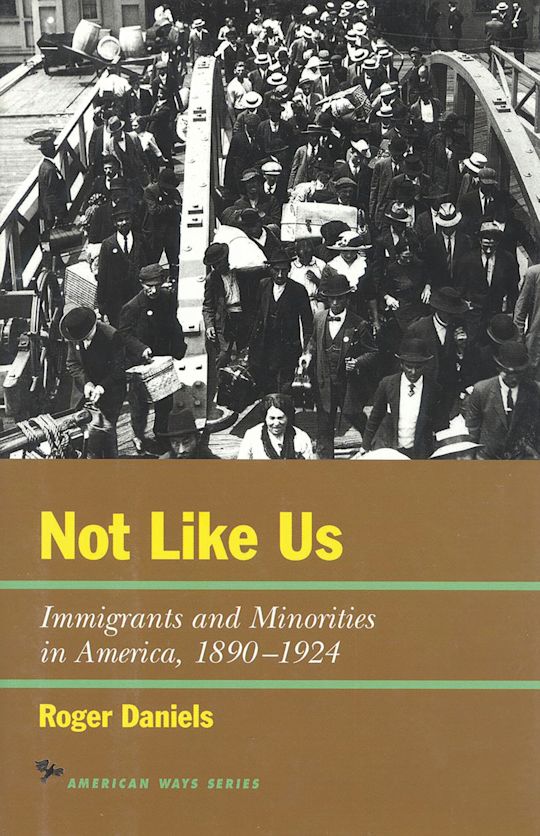- Home
- ACADEMIC
- History
- United States History
- Not Like Us
This product is usually dispatched within 1 week
- Delivery and returns info
-
Free CA delivery on orders $40 or over
You must sign in to add this item to your wishlist. Please sign in or create an account
Description
In the thirty-five years after 1890, more than 20 million immigrants came to the United States—a greater number than in any comparable period, before or since. They were often greeted in hostile fashion, a reflection of American nativism that by the 1890s was already well developed. In this analytical narrative, Roger Daniels examines the condition of immigrants, Native Americans, and African Americans during a period of supposed progress for American minorities. He shows that they experienced as much repression as advance. Not Like Us opens by considering the Chinese Exclusion Act of 1882, the hinge on which U.S. immigration policy turned and a symbol of the unfriendly climate toward minorities that would prevail for decades. Mr. Daniels continues the story through the 1890s, the so-called Progressive Era, the opportunities and conflicts arising out of World War I, and the “tribal twenties,” when nativism and xenophobia dominated American society. An epilogue points out gains and losses since the 1924 National Origins Act. Throughout Mr. Daniels’s focus is on legislation, judicial decisions, mob violence, and the responses of minority groups. The record is scarcely one of unalloyed progress.
Table of Contents
Chapter 1: The United States in the Grey Nineties
Chapter 2: The Limits of Progressivism
Chapter 3: World War I and the Ambiguities of Nationalism
Chapter 4: Postwar Passions
Chapter 5: The Triumph of Nativism
Epilogue: Toward Equality
Product details
| Published | Aug 01 1997 |
|---|---|
| Format | Hardback |
| Edition | 1st |
| Extent | 192 |
| ISBN | 9781566631655 |
| Imprint | Ivan R. Dee |
| Dimensions | 218 x 146 mm |
| Series | American Ways |
| Publisher | Bloomsbury Publishing |
About the contributors
Reviews
-
A readable history of ethnic minorities and immigrants . . . powerful.
Maxine D. Jones, Journal of Southern History
-
Lucid and effective . . . Daniels maps out the contradictions and inequities which characterize legislation enacted against the socially defined 'other.'
Immigrants and Minorities



































